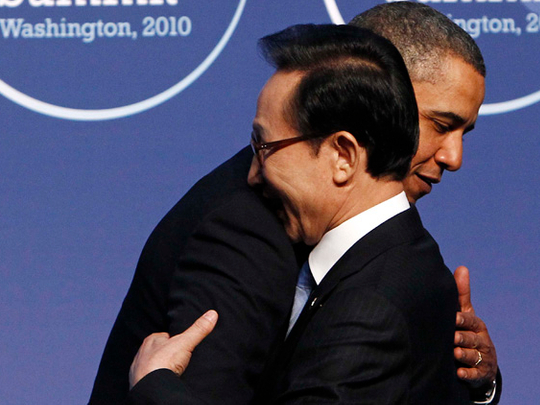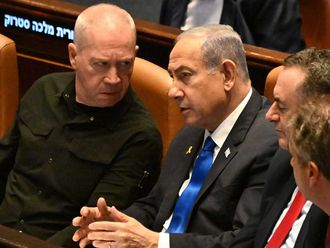
Beijing: US President Barack Obama's push for new sanctions on Iran gained ground on Monday in talks in Washington with Chinese President Hu Jintao, who agreed Beijing would help craft a US resolution, a US official said.
What is China's general position on sanctions?
China has long said that sanctions are not an effective tool for solving disputes and has frequently used that line in reference to Iran.
The stance reflects Beijing's resentment of Western sanctions it has faced, especially after the 1989 armed crackdown on the Tiananmen Square pro-democracy protests.
It also chimes with China's stance of "non-interference" in other nations' domestic affairs, a position that has often amounted to wanting to insulate its economic interests from diplomatic friction.
Beijing has, however, backed past rounds of U.N. sanctions against North Korea and Iran over their disputed nuclear activities and China this year also threatened to slap unilateral sanctions on US firms selling weapons to Taiwan, the self-ruled island that Beijing claims as its own.
Since the 1990s, China has cast itself as a responsible supporter of nuclear non-proliferation safeguards.
That desire to be a respected global player and not be isolated from dominant international opinion is likely to weigh in favour of China allowing some fresh sanctions against Iran, especially with Russia indicating it may back them.
How will China handle the new sanctions push agains Iran?
While Beijing sometimes abstains from Security Council votes on decisions it dislikes, it is much less willing to use its veto and risk diplomatic isolation, especially if fellow Security Council member Russia backs a resolution.
China is more likely to try to draw out negotiations on sanctions, as it has done before, and thwart any measures that could threaten its energy and economic ties with Iran.
In July 2006, China backed U.N. Security Council Resolution 1696 that threatened sanctions on Iran, and in December that year it supported Resolution 1737, which imposed sanctions on Iranian nuclear imports and exports.
It supported two further resolutions, one in 2007 which broadened the sanctions to cover a ban on Iranian arms exports, and another in 2008 which criticised Iran for refusing to suspend uranium enrichment.
Each time, however, Beijing has worked to rein-in Western demands for tougher restrictions on Tehran.
Diplomats said that in a meeting last week China made clear it objects to a proposed ban on new investments in Iran's energy sector as part of possible new U.N. sanctions.
Why is China opposed to strict economic sanctions?
Beijing sees Iran as an important oil supplier and trade partner and as a major strategic presence in the Middle East, where China is buying more oil.
There is scant chance of China risking those ties by backing expansive economic sanctions.
China is the world's No. 2 crude oil consumer, behind the United States. Iran has the world's second-largest crude oil reserves, but needs investment to develop them.
In 2009, Iran was China's third biggest source of imported crude oil. But in the first two months of 2010, China imported 2.53 million metric tonnes of Iranian crude oil, a drop of 37.2 per cent compared to the first two months of 2009.
That made Iran the fourth-ranked foreign source of crude for China so far this year, behind Russia, Angola and the top supplier, Saudi Arabia.
China is also an investor in Iranian oil and gas, and Chinese state-owned energy conglomerates have been exploring for new fields there, with an eye to expanding their stake.
Industry sources have said China has been selling gasoline to Iran, which lacks refining capacity to meet domestic demand. Chinese customs statistics do not record any shipments, which may go through intermediaries.












